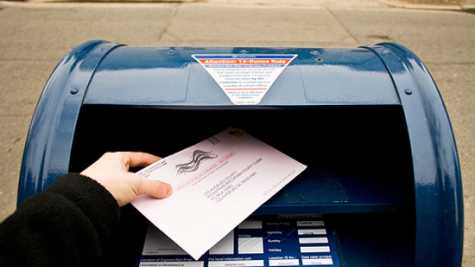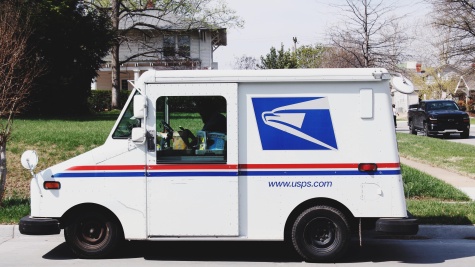Does Vote-by-Mail Cause Voters to Gather Information About Politics?
The MIT Election Data and Science Lab helps highlight new research and interesting ideas in election science, and is a proud co-sponsor of the Election Sciences, Reform, & Administration Conference (ESRA).
James Szewczyk recently presented a paper at the 2019 ESRA conference entitled, “Does Vote-by-Mail Cause Voters to Gather Information About Politics?” Here, he summarizes his analysis from that paper.
All-mail elections — elections in which all registered voters in a jurisdiction are mailed a ballot to their home — are an increasingly common method of election administration in the United States. Three states currently hold their elections entirely by mail: Oregon, Washington, and Colorado. In addition, California and Utah are in the process of rolling out vote-by-mail at the county level, and Hawaii will implement all-mail elections statewide in 2020.
As vote-by-mail reforms have swept across the country, there has been a great deal of academic research on the topic. For example, previous work has examined the impact of vote-by-mail on voter turnout, ballot roll-off, the composition of the electorate, and election outcomes. However, scholars have yet to examine how the reform affects how voters gather information about politics. In this paper, I expand our understanding of vote-by-mail by examining the effects of all-mail elections on voter knowledge.
I argue that using a mail-in ballot fundamentally changes citizens’ voting experience in a way that increases the likelihood that they gather information about politics. Voters are able to obtain relevant political information when voting by mail because they have additional time with their ballots when voting. Voters can use this extra time to, for example, access resources on the Internet and consult their voter information guides to conduct research about the election. On the other hand, voters do not have the ability to use these information sources when voting at a polling place if they come across a race on the ballot that they do not know anything about. As a result, voters who reside in a jurisdiction that implements all-mail elections will be more informed than voters who cast their ballots at a polling place.
I test the predictions of this theory with two empirical studies. In the first study, I estimate the effects of all-mail elections on straight ticket voting in Utah. Voters in Utah have the ability to make one mark on the ballot in order to vote for all of the candidates of a given political party for each race that appears on the ballot. I find that the implementation of all-mail elections in Utah caused a 5 to 6 percentage point decrease in straight ticket voting in the state. The findings are consistent with my argument that voters spend more time conducting research about the election when voting by mail; that is, when voting by mail voters consider each race on the ballot individually instead of simply choosing the straight ticket option. This suggests that voters are spending more time with their ballots after they switch from voting at a polling place to using vote-by-mail.
In the second study, I directly test the hypothesis that voters increase the amount of time they spend conducting research about the election and are more informed when voting by mail. I exploit the fact that an electoral reform, the California Voter’s Choice Act (VCA), was implemented in 2018 that resulted in five counties in California switching to all-mail elections. I field an original survey of eligible voters in California during the 2018 general election that asks questions about how voters gather information about politics and their knowledge of specific races on the ballot.
The survey is fielded in two waves — the first wave is administered prior to when vote-by-mail voters receive their ballots and the second wave is administered after election day. This gives me the ability to compare changes in voter behavior and knowledge about races on the ballot between voters that do and do not live in counties that adopted all-mail elections in 2018. I find that using vote-by-mail causes an increase in the amount of time that voters spend conducting research about the election and an increase in the probability that voters can answer questions about ballot measures correctly. However, there is no evidence that vote-by-mail affects prevalence of political discussion or levels of knowledge about the party identification and ideology of candidates.
The relationship between vote-by-mail and voter knowledge is important because it has broad implications for the ability of citizens to uphold the norms of democratic accountability. If voters have higher levels of political knowledge, they may be better able to hold elected officials accountable and cause meaningful changes in public policy. In fact, in other research I find that that this is indeed the case; the implementation of vote-by-mail in Washington causes policy outcomes in the state’s municipalities to be more in line with the preferences of voters.


